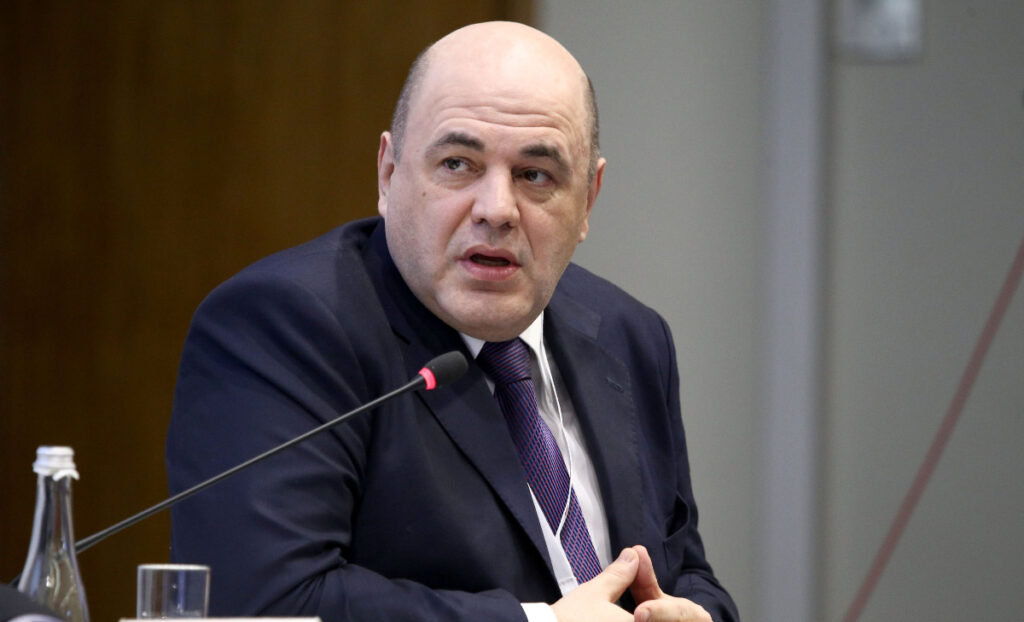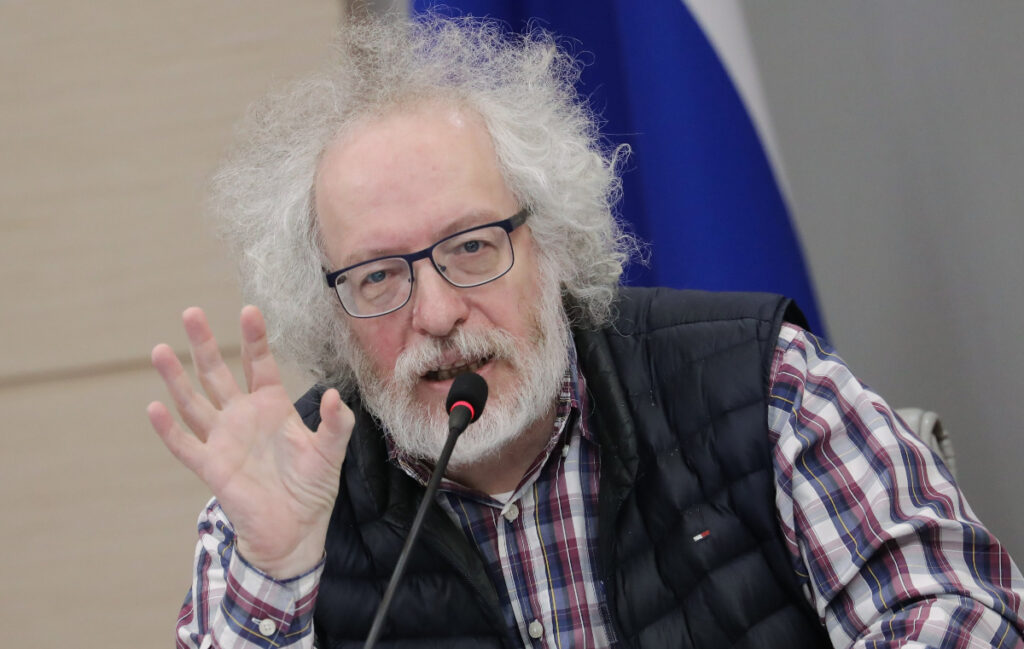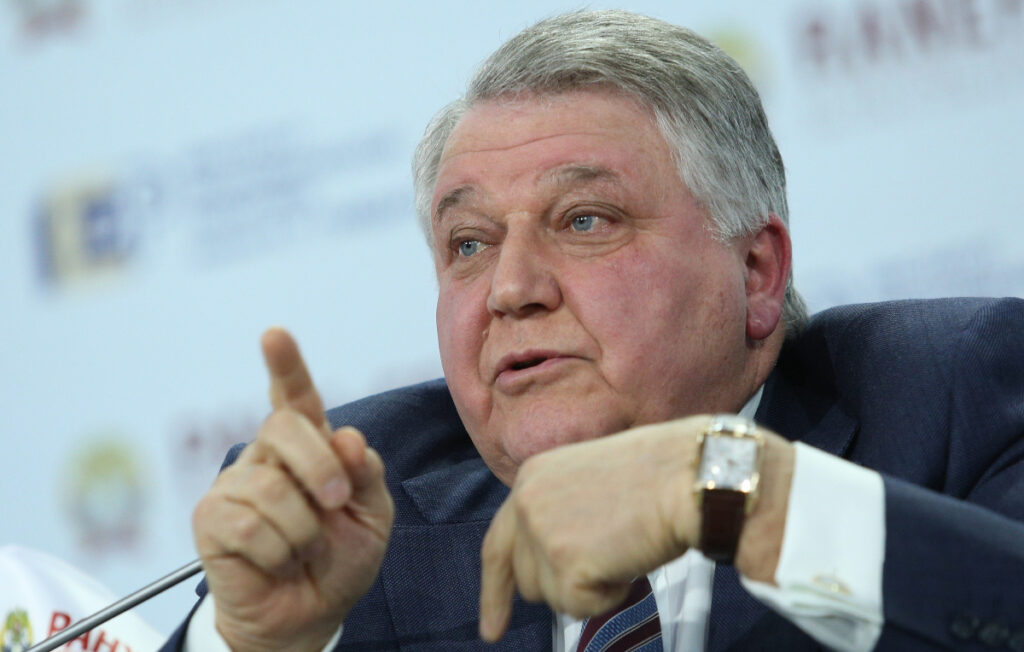
COVID-19 in the Cabinet
Hello! Our top story this week is how the coronavirus has reached the top of Russian government, and what consequences this may have. We also look at a #MeToo scandal in the media industry, why state-owned oil giant Rosneft is investing in genetic research and Pavel Durov’s offer to investors in his delay-hit blockchain platform TON.

Russian PM Mishustin tests positive for COVID-19
There are now nearly 115,000 confirmed coronavirus cases in Russia. Prime Minister Mikhail Mishustin announced Thursday that he is one of them — making Russia the second major country after the United Kingdom to see COVID-19 take its prime minister out of action. The Bell took a look at what Mishustin’s absence will mean.
- Mishustin told (Rus) Putin of his positive coronavirus test during a video conference broadcast live by television channel Rossiya 24. According to (Rus) Mishustin’s press secretary, the prime minister will be treated in a “Moscow medical center”. There are few details on his condition, but Mishustin told (Rus) Kommersant newspaper he wasn’t feeling well, and he reportedly has a high temperature. Mishustin last met with Putin in person a month ago.
- Kommersant’s sources suggested Mishustin may have caught COVID-19 from one of the doctors who do daily tests on officials. A source in the government told The Bell there are other ministers with COVID-19, and it emerged Friday that Construction and Housing Minister Vladimir Yakushev had also tested positive.
- Mishustin suggested to Putin that he appoint Deputy Prime Minister Andrei Belousov as acting prime minister and, just 15 minutes later, Putin signed (Rus) a decree to do exactly that. Two sources subsequently told Meduza that Mishustin might not return to the premiership: when his predecessor Medvedev was taken ill, there were no special decrees issued to appoint a temporary replacement. But Putin’s press secretary Dmitry Peskov called Meduza’s theory “rubbish”, and The Bell’s sources agreed this was unlikely to be the end of Mishustin’s career.
- Belousov was an economic advisor to Putin for many years, and was the man behind last year’s unpopular VAT increase. He is the ideologue behind the so-called ‘national projects’, a massive programme of government spending, designed to accelerate economic growth. A staunch believer in the role of the state, Belousov has said a “ring of enemies” surrounds Russia, and was the only member of Putin’s economic team to support the 2014 annexation of Crimea, according to The Bell’s sources (we wrote in more detail about Belousov in Russian here).
Why the world should care We learned (Rus) last week that Mishustin’s approval rating is as low as that of Medvedev in his last years in the same job. In recent weeks, Mishustin has been pushed out of the spotlight: Russia’s coronavirus response has been dominated by Putin and Moscow Mayor Sergey Sobyanin. When Putin appointed Mishustin prime minister, no one could have predicted the pandemic: he was chosen because he was a successful tax specialist who could control state spending. The situation has changed dramatically, and it is an open question if Mishustin will be the one to lead the Cabinet going forward.
Top liberal journalist embroiled in #MeToo scandal
The BBC Russian Service published an in-depth profile (Rus) of prominent Russian journalist Alexey Venediktov on Thursday in which two women made allegations of sexual harassment. The editor-in-chief of liberal radio station Ekho Moskvy is the third public figure to face such accusations after top Duma deputy Leonid Slutsky and the editor-in-chief of media outlet Meduza, Ivan Kolpakov. The article led to a flurry of indignation on Facebook, but it looks like these were be the most serious consequences Venediktov will face.
- Two young women told stories of unwanted approaches by Venediktov in the BBC article. Anna Veduta, the former press secretary of opposition leader Alexey Navalny, said the then 56-year-old Venediktov gave her a ride home and, in the cab, touched her knees, moved his hands “higher”, insisted on walking her to her door, tried to kiss her and asked if anyone was home. Learning that her parents were, Venediktov left. Veduta was 22 years old at the time. Another activist spoke anonymously about how Venediktov put his hand on her knee at dinner and moved it up her leg. She said she couldn’t get up from the table, so she removed his hand, but he put it back again.
- Venediktov’s female colleagues at Ekho Moskvy described him in the article as “very touchy”. They said he would regularly touch female subordinates on the shoulders, kiss them on the cheek, stroke them, and call them “bunny, chick, or kitty”.
- After the article was published, Venediktov publicly apologized to Veduta, adding “he doesn’t even remember” the events she described, but that, even so, he has a “different point of view” about them. He categorically denied the accusations made by the second young woman, suggesting she simply “wants to find fame through his name” (even though the young woman remained anonymous).

- Venediktov’s friends said he always relished his reputation as a bon vivant, but what happened to his former friend, Duma deputy Slutsky, changed his perspective (Venedictov said he won’t talk to him again unless he apologizes). In 2018, three journalists spoke publicly about experiencing harassment from Slutsky, and one provided a recording confirming her accusations. Not only did Slutsky fail to apologize and keep his position, but he was recently appointed (Rus) president of a faculty at a prestigious Moscow university.
- Slutsky is by no means Venediktov’s only influential friend. Although Ekho Moskvy is critical of the regime, Venediktov is a frequent guest in the Kremlin, and his radio station is owned by the state-controlled Gazprom Media. For example, Venediktov’s political ties helped him play a central role in negotiating with the authorities last year to free investigative journalist Ivan Golunov who was arrested on false drug charges. According to the BBC Russian Service’s sources, Venediktov has good connections with City Hall, and is close to officials who even come to him for political advice.
- Russia’s other resonant #MeToo case was that of Ivan Kolpakov, the Meduza editor-in-chief, who in 2018 allegedly touched the buttocks of a colleague’s wife at a party, claiming “nothing will happen to me”. Kolpakov initially lost his job but was reinstated three months later. He disputes the accusations.
- The contrast with another recent scandal is telling. TV host Regina Todorenko defended (Rus) domestic violence in an interview last month. Admittedly, she apologized for saying “your husband beats you, and what did you do to prevent him from beating you up? And what did you do to make him hit you?” — but it was too late. Glamour magazines rescinded her Woman of the Year award and PepsiCo pulled out of an advertising contract.
Why the world should care The lack of serious consequences for Venediktov, or Slutsky and Kolpakov, shows many Russians consider such behavior acceptable. But why did TV host Todorenko face such serious sanctions? Either people have stronger views on domestic violence than sexual harassment (which would be a new development for Russia), or society finds it easier to forgive men than women.
Rosneft and Putin’s daughter lead search for ‘Russian gene’
Putin announced a $1.7 billion genetic programme in 2018, comparing (Rus) the potential of genetic engineering to a new “nuclear bomb”. The following year, the president’s eldest daughter, Maria Vorontsova, joined the programme’s advisory council and, this week, state-owned oil giant Rosneft got involved (Rus). The Bell looked at the big players behind this new drive to study genetic technologies, and why now (the article in Russian is here).
- Vorontsova is widely believed to be Putin’s daughter although the relationship has never been officially confirmed. An endocrinologist by training, Vorontsova was appointed (Rus) by Putin himself to the genetic programme’s council in April 2019.
- The Kurchatov Institute in Moscow is leading the program. A very secretive organization, traditionally focused on nuclear technology, the institute reports directly to the government. It built the first atomic reactor in Europe and the world’s first thermonuclear bomb but, over the last 15 years, it has merged with several other major research institutes, including ones studying genetics (Rus).
- The institute is led by Mikhail Kovalchuk, an influential proponent of genetics in service of the state and the brother of billionaire Yuri Kovalchuk, one of Putin’s close friends. In 2015, Kovalchuk said (Rus) in a speech that foreign forces were trying to interfere “in the evolutionary process” to create “a servant person”, an entirely new type of human. Kovalchuk clearly had the U.S. in mind, and his speech caused quite a stir. A source in the genetic technologies sector told The Bell that the idea for Russia to prioritize genetics comes from Kovalchuk.

Mikhail Kovalchuk
- One of the program’s primary goals is genetic engineering and the legislative changes required for this to go ahead. Vorontsova participated in a meeting with academics on this topic last year when her involvement became public. Another goal is to build genetic research centers, and Rosneft will provide the funds for the first of these — up to $1 billion, according (Rus) to the BBC. The advisory council, of which Vorontsova is a member, will manage the partnership with Rosneft.
- The main aim is a genetic analysis of the Russian people, the BBC reported. The program plans to collect genetic material from 100,000s of Russians to find out if they can identify any characteristic genes, and whether they can be engineered.
Why the world should care New genetic technologies could lead to a medical revolution, and there is no doubt Russia really is lagging behind in this cutting edge research. But the leaders of Russia’s program do not inspire confidence: Putin’s daughter would never have been involved without her father’s influence and Kovalchuk sees genetics as a “matter of national security” and believes (Rus) that gay people and families without children are “perceptions in the mind that go against nature”. It seems unlikely any breakthroughs will be used for the benefit of all Russians.
IN BRIEF
Durov’s offer to TON investors: 72% now, or 110% in a year
Billionaire entrepreneur Pavel Durov’s deadline for launching TON expired Thursday with no sign of the new blockchain platform. Durov had promised investors, who put in a total of $1.7 billion, that they would get their money back if there was no launch. The reason for the delay is a temporary ban (Rus) on Durov’s cryptocurrency, Gram, issued by a U.S. court as a result of a lawsuit filed by the Securities and Exchange Commission (SEC). Investors this week were discussing the possibility that cash would only be returned to U.S. citizens, while all other investors would receive Gram tokens in violation of the court order. But, in the end, investors received a more sensible offer: either get 72 percent of their investment back immediately, or wait another year and get Gram tokens, or 110 percent of their investment. If the project isn’t profitable by April 2021, Durov pledged he would pay investors with shares in parent company Telegram (currently solely owned by Durov). Investors who spoke to The Bell had differing opinions: one still believes in the project and is prepared to wait, while others are exhausted by the saga and want their money back as soon as possible.




